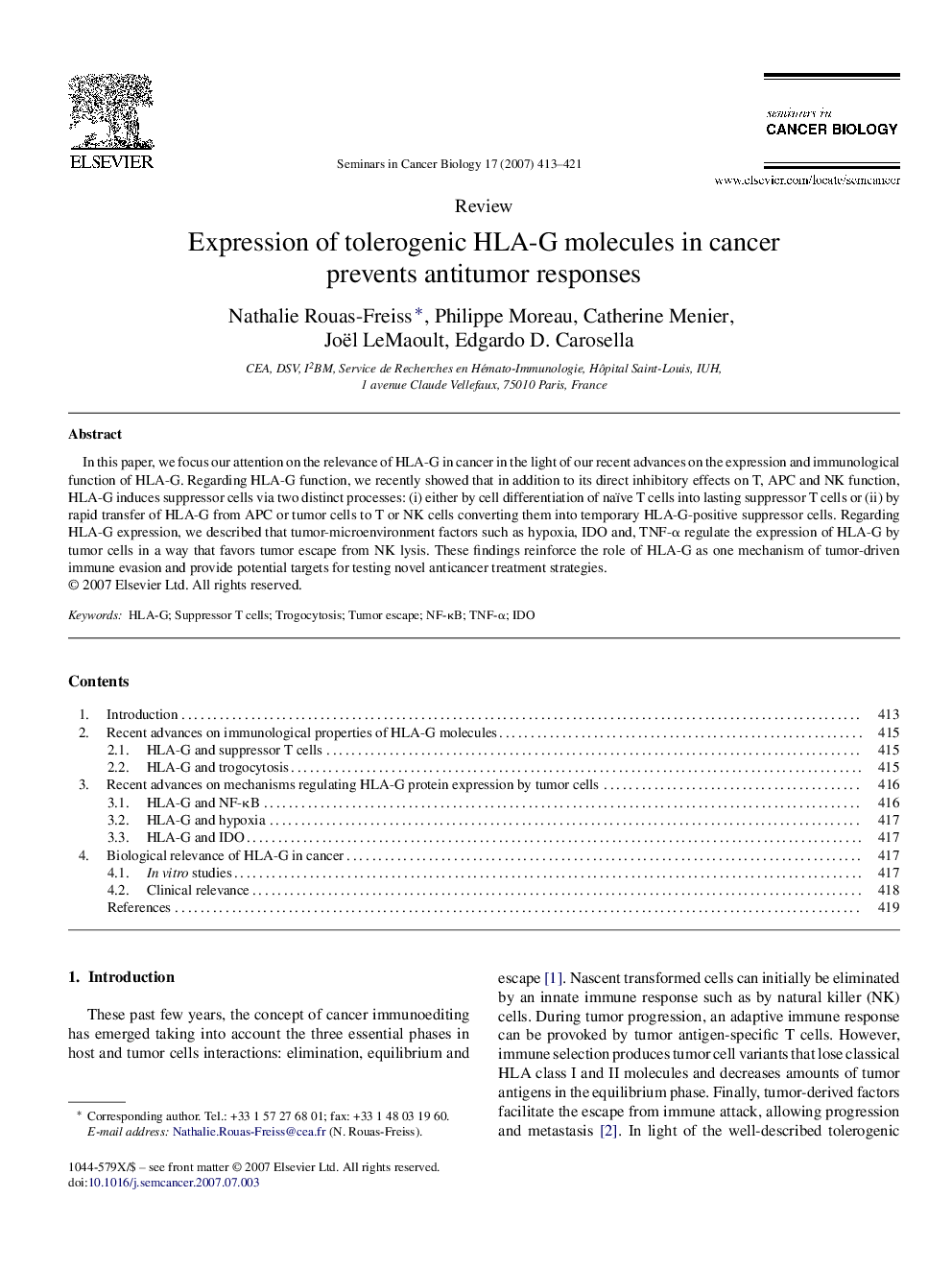| Article ID | Journal | Published Year | Pages | File Type |
|---|---|---|---|---|
| 2024202 | Seminars in Cancer Biology | 2007 | 9 Pages |
In this paper, we focus our attention on the relevance of HLA-G in cancer in the light of our recent advances on the expression and immunological function of HLA-G. Regarding HLA-G function, we recently showed that in addition to its direct inhibitory effects on T, APC and NK function, HLA-G induces suppressor cells via two distinct processes: (i) either by cell differentiation of naïve T cells into lasting suppressor T cells or (ii) by rapid transfer of HLA-G from APC or tumor cells to T or NK cells converting them into temporary HLA-G-positive suppressor cells. Regarding HLA-G expression, we described that tumor-microenvironment factors such as hypoxia, IDO and, TNF-α regulate the expression of HLA-G by tumor cells in a way that favors tumor escape from NK lysis. These findings reinforce the role of HLA-G as one mechanism of tumor-driven immune evasion and provide potential targets for testing novel anticancer treatment strategies.
